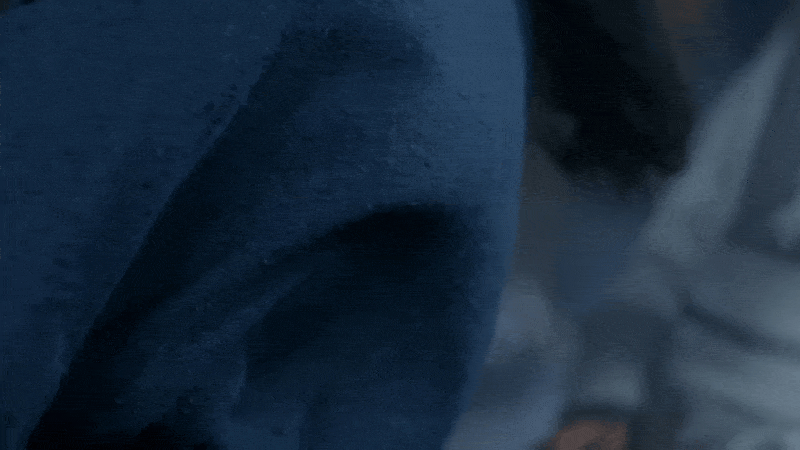#더줘 제발.. 더줘..
Explore tagged Tumblr posts
Text
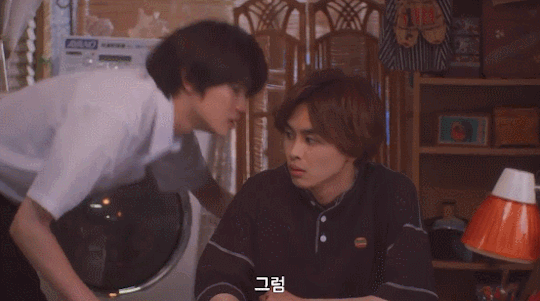
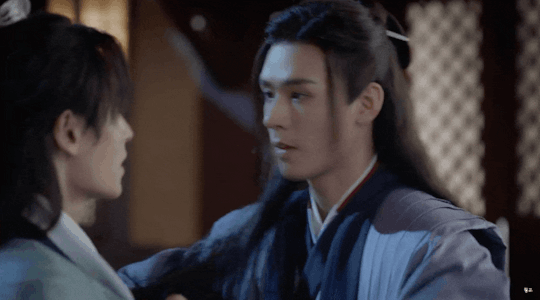
나 이런거 좋아하네.. 본체가 쿨해서 더 미칠거 같아 연하가 연상 털어먹는거 정말 너무 맛있다 아 맞아 큰애랑 더 큰애라 좋은걸까 문짝만한것들이 붙어있는게 너무 좋다
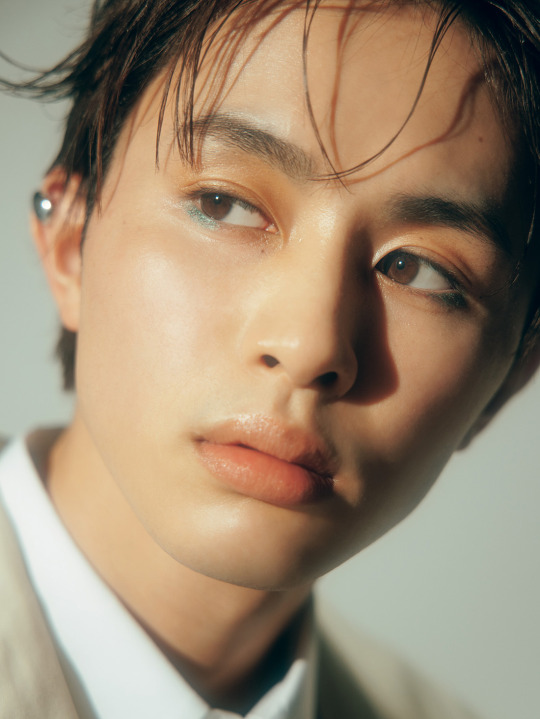
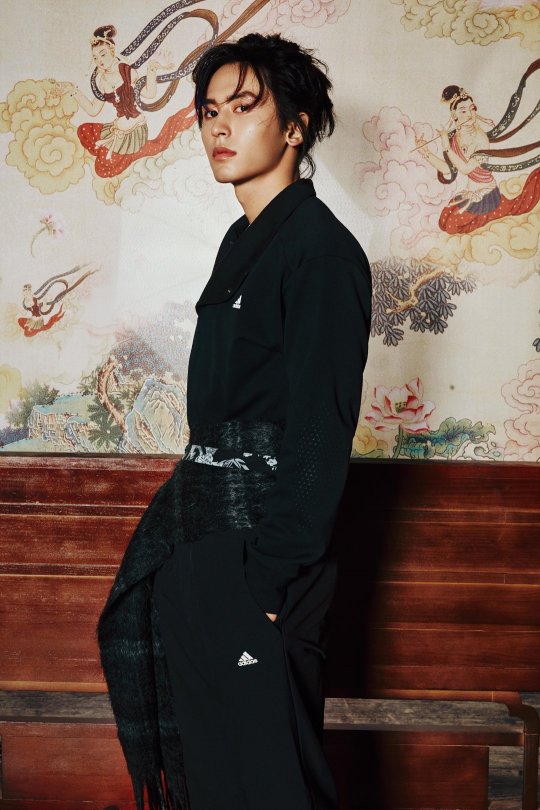


닮았어.. 쿠사카와가 좀 더 선이 얇은데 둘이 진짜 많이 닮았다 웃으면 좀 달라지는데 이렇게 보면 진짜.. 본체는 파면 안되는데ㅠㅠㅠㅠ 본체느뉴ㅠㅠㅠㅠㅠㅠ
#주자서#온객행#미나토 아키라#카츠키 신타로#미나코인#산하령#연상연하#한쪽은 팔목이 시릴정도의 차이야#온객행이랑 주자서도 나이차이 많이 났으면#벌써 맛있어#아쉽다#더해봐 더줘#뇌절해#더줘 제발.. 더줘..#본체랑 캐릭터랑 너무 다른거 아니에요?#본체는 파면 안돼
3 notes
·
View notes
Text
他若故剑情深
He must be loyal to the past.
It's from 漢書·外戚傳(hàn shū · wài qī chuán) which is 97th chapter of all 100 chapters. It's about queens of 漢(Han; BC.206~AC.24). 外戚 means maternal relatives. Sadly, most of historical record doesn't show the name of queens but where and which family she's from and title of her when she died. This phrase is from 恭哀皇后(gōng āi huáng hou; literally, the Respectful and Lamentable Empress), 許平君(Xu Pingjun which isn't exactly name but title before she married).
His hushand 劉詢(Liú Xún) was a discarded king's heir, but Xu family was very powerful. First her father didn't want her to merry him but they did. After that her family had gathered power and wealth. They made him a emperor. 許平君 was a wife and an ally to 劉詢. Unfortunately, she died before him to enthrone. After 劉詢 became an emperor, the vassals asked him to merry as a queen. But he only askes for old sword(故劍) and most of them knew that old sword means 許平君. This phrase is used for someone who merried, being faithful to one's spouse. its literal meaning is; the love deepens with old sword.

晉王(Jin wang) is saying that the old sword is four season house. So if he cannot leave behind, then destroy it. How cruel he could be? and well just because Wen kexing was in four season house, the phrase just make things more suspicious.
I don't usually post about other characters but Zhou zishu and Wenkexing.. but I had to... it just makes their story more interesting and complicate. More FUN😍 I'm still imagining if Jin wang knew Wen kexing was with Zhou zishu. And what would be like if Wen kexing met Jin wang.
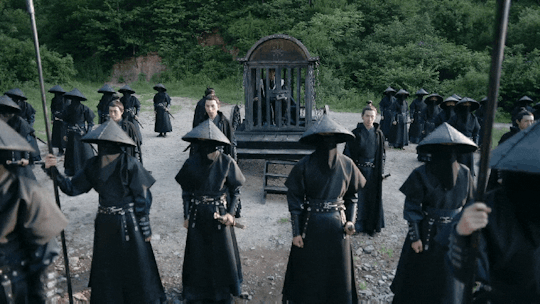
#��河令#word of honor#shan he ling#shl#산하령#배움이 짧아서 모르겠어#ep29#ep 29#진왕 진짜 미쳤나#헉헉 뭐라는거야 지금?? 아니 갑자기 무슨소리세요#기혼자가 배우자를 아낀다는 뜻이라잖아#배우자가 누군데 미쳤나봐#온객행이야?? 그래?? 온객행이야?#언제 주자서랑 온객행 나몰래 결혼했어?#또 이렇게 나만 자꾸 따돌린다 진짜..#내가 알게 하란말이야#더줘 제발.. 더줘..#Jin wang is a spicy for wenzhou#Jin wang makes wenzhou taste better#晉王인데... 자꾸 秦王같구.. 둘다 진나라란 말이야
2 notes
·
View notes
Text
旣爲手足之情,一榮俱榮,一損俱損
For brotherhood, one honors we honor together, one suffer we suffer together.
It's from a novel called 紅樓夢(Hóng lóu mèng; a dream of the red chamber) by 曹雪芹(Cáo Xuěqín) There are many suspicions like Shakespeare, that it has many different cultural events and historical events, that Cao Xurqin gathered the story and complied. Nobody knows. it is known for its psychological scope, and its observation of the worldview, aesthetics, life-styles, and social relations of 18th-century china.
Here, the 手足之情(shou zu zhi qing) is from 莊子(Zhuāngzǐ), 兄弟爲手足 which means brotherhood is like all fours(arms and legs). So it may be translated as "to be closely connected".
紅樓夢 has many different stories but the main story line is about 4 different families' rise and fall. There are family, love, society and politics. The relation among the families is complicated. The line comes up where a judge gave wrong verdict, with bribe of one of the four family. Literally, when one suffers, the others suffer; when one prospers, the others prosper. It is a metaphor that in all links of life and lives, the results of victory, defeat, honor and disgrace are the same.

Before Wen kexing mentioned 同生共死 (tóng shēng gòng sǐ; live together, die together) is rather similar meaning. But in 一榮俱榮,一損俱損, it has meaning of connections or relationship among people. Somehow asking, you sure, what you're doing, is not going to be questioned later?
Zhou zishu is seriously committed being a brother of Wen kexing. I don't think that is not a type of love I would expect, still it works. It's sad watching Zhou zishu trying to save his beloved, becasue so far he has failed. I hope this time he saves Wen kexing.
#山河令#word of honor#shan he ling#shl#산하령#배움이 짧아서 모르겠어#홍루몽#紅樓夢#a dream of red chambers#주자서가 죄가 많아#주자서 참으른이네#다 받아준다#엽백의 정말 뭐야#그래서 죽이기라도 하게?#복잡하다 복잡해#홍루몽 아직 안읽었는데 쿨�� 4대 명작이라니까 한번 읽어보고 싶네.. 영화도 있고 드라마도 있던데#더줘 제발.. 더줘..#너네 그거 사랑이야#사랑해해해해애애애애#내가 알게 하란말이야#ep27#ep 27
3 notes
·
View notes
